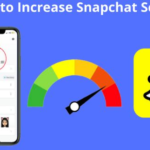
Starving yourself for losing weight is not healthy for you. Healthy and sustainable weight loss is 1–2 pounds (0.45–0.9 kg) per week. It includes eating a nutritious diet. In addition, you have to exercise regularly to reach a slight calorie deficit.
How can I Starve Myself without Getting Hungry
You can starve yourself without getting hungry by eating enough protein. Adding more protein to your diet can improve feelings of fullness. It causes you to eat less at your next supper. It also assists you with losing fat.
Moreover, you can starve yourself by:
- Drinking coffee
- Picking solids over fluids
Starving yourself for losing weight is not healthy for you. However, regulated detoxes can help purify the body.
Choose fiber-rich nourishments. Fill up on water. Also, eat some ginger.
Eat Vegetables to Starve yourself Healthily
You can eat vegetables to starve yourself healthily. Vegetables have a lot of fiber and are full of nutrition like essential vitamins and minerals. They may help your body improve metabolism. Improved metabolism subsequently burns belly fat. Including these in your diet will help you in your weight loss journey.
Consume proteins to starve yourself healthily
Adding more protein to your daily meal can enhance feelings of fullness. It causes you to eat less at your next meal. It also helps you with losing weight. For example, a weight reduction study looked at two breakfasts similar in calories. One of them consists of eggs, the other of bagels.
Members who had eggs in breakfast lost 64% more weight and 15% more body fat over the eight-week study period. Moreover, protein intake may help to prevent muscle loss.
Making protein around 20–30% of your entire calorie intake, or 0.45-0.55 g/lb of body weight (1.0–1.2 g/kg), will be enough to give the advantages.
Avoid “White” Carbs
Some people believe that they can lose weight by avoiding white carbs.
Intermittent Fasting
There are many different methods to lose weight. One of them is called intermittent fasting.
Intermittent fasting is a unique eating pattern. It involves regular, short-term fasts. Or it may have minimal or no food consumption periods.
Fasting for a short period of time helps you eat fewer calories. It results in weight loss over time.
Intermittent fasting may also help modify risk factors for health conditions like cardiovascular diseases and diabetes.
There are several different intermittent fasting methods. Some of them are:
- The 16:8 method
- The 5:2 diet
- The Warrior diet
- Eat Stop Eat
- Alternate-day fasting (ADF)
All methods can be effective. You need to find out the best way for yourself.
There are many varieties of intermittent fasting, each with its own benefits and challenges. You can talk to your doctor to decide which option is right for you.
Don’t Drink Calories
Don’t Drink Your Calories is an easy approach that helps you make good nutrition choices. You’ll feel much more satisfied if you eat your calories rather than drink them. Here are the four reasons to stop drinking your calories:
Weight Gain
Research shows that substituting water for sugary beverages helps everyone lose weight.
Empty Calories
Choose food that has the most nutrients per calorie.
Liquid calories do not help you feel full
Sugar-sweetened beverages do not allow us to feel full.
Insulin Resistance
Sweetened beverages are absorbed into the body. As a result, our insulin needs to respond rapidly to keep our blood sugar in control. If we regularly consume sugary drinks, our insulin levels go down. It develops insulin resistance. Insulin resistance is associated with weight gain, diabetes, heart disease, cancer, and infertility.
So here are some alternatives to save your calories:
- Reduce the size of your coffee, and the sweeter added. Use fat-free milk to save calories.
- Use water with your meal rather than soda or juice.
- Try sparkling water with lemon slices, if you have iced tea
- Dilute the fruit juices with water
- Swap your chocolate shake for an 8-ounce carton of chocolate milk
Repeat Your Meals
You can lose weight by repeating the same meals again and again. Ensure that the meals provided are balanced and lead to a calorie deficit.
Why Starving Yourself Isn’t a Good Idea for Weight Loss
Starvation is defined as a long period of time without food. It can be defined as the time with minimal food intake significantly below the daily calorie needs of your body. It leaves your body in a large calorie deficit. It will also lead to unsustainable weight loss.
Generally, nutritionists define a low calorie diet as starving. A low calorie diet is consuming 450–800 calories or fewer per day. It isn’t healthy or sustainable in the long term. Starving your body of calories may cause numerous health risks. That’s why it’s not a good idea for weight loss.
Your Metabolism Slows Down
Starving is not a good idea for weight loss as it slows down your metabolic rate.
Your body begins to use its fat stores as a primary energy source in case of calories deficiency. Your resting metabolic rate (RMR) is reduced due to calorie deprivation. It makes your body less effective at burning calories to preserve as much energy as possible.
Further, a slow metabolic rate may fatigue you. It is a strategic mechanism your body puts in place to prevent you from expending too much energy. Your body also increases the level of hunger hormones to motivate you to eat.
Your body works Less Effectively
Your body works less effectively when you’re starving. Your body needs to prioritize essential bodily functions. These functions are breathing and heart rate. It reduces the nonessential processes, such as:
- Hair and nail growth: Your hair and nails may become hard.
- Immunity: Your immune system will be disturbed.
- Digestion and hunger regulation: It may cause irregular hunger, bloating, or stomach discomfort.
- Reproductive health: Your menses cycle may change.
- Skin health: You may experience delayed wound healing.
- Bone health: Your bones may become weakened.
Starvation puts your body in an unhealthy state. You may lose weight quickly. But your body needs enough calories to function properly. You’ll need to work hard to restore your weight and health as soon as possible.
May Harm your Mental Health
Starvation and other harmful dieting behaviors can harm your mental health.
Dieting through starvation may cause disordered eating behaviors. In severe cases, starvation may develop into an eating disorder such as anorexia nervosa.
Evidence Based
Starving yourself for losing weight is not healthy for you. After long-term starvation, your body’s metabolism may slow down. Your body may not function properly. So your mental health may decline.
What Is The Best Way To Starve Yourself To Lose Weight
- Aim for a small calorie deficit. A 10–20% calorie deficit is manageable. For example, if your average calories are 2,500 calories per day. Go for a deficit of 250–500 calories per day through a healthy diet and exercise.
- Increase your physical activities. Try strength training and cardiorespiratory exercise for about 30 minutes each day.
- Add strength training to your routine. Strength training helps build muscle tissue during weight loss. Building muscles can increase your metabolism.
- Avoid processed foods. Homemade food is lower in calories and higher in protein, fiber, and healthy fats to promote fullness.
- Eat more protein. A high protein diet will help preserve muscle tissue during a calorie deficit.
- Limit sugary beverages and energy drinks. Use water, flavored water, coffee, and tea most often.
- Most research shows that a sustainable rate of weight loss is 1–2 pounds per week. So, slowly add new healthy habits to help you complete your weight loss goals.
Easy Ways To Lose Weight When You Weigh 300?

Here are some weight loss tips if you weigh 300 pounds:
- Do not eat in front of computers, televisions, or other screens. It can cut your calories by keeping you from overeating.
- Exercise in front of your television.
- If you have cravings, choose fruits and veggies.
- Look at the menu and choose a healthy meal when you go out. It helps you stay on track and avoid giving in to temptation.
- Don’t go shopping when you’re hungry.
People Who Diet To Lose Weight Usually Quizlet?
Here are some tips for the people who diet to lose weight:
- Intermittent fasting
- Plant-based diets
- Low carbs diets
- The Paleo diet
- Low-fat diets
- The Mediterranean diet
- WW (Weight Watchers)
- The DASH diet
FAQ – How to Starve Yourself
First, we need to know what happens to our bodies if we starve for a day. Our body uses stored glucose as energy and continues to function. After eight hours without eating, your body starts using stored fats for energy.
However, it is fine to starve for a day as long as you drink plenty of water. A fast is good for the body, but only if you are fit and healthy.
Here are some ways to convince yourself not to eat food that you don’t need:
Take a walk
Sit by a window and read a book
Listen to a podcast
Call a friend, parent, or sibling
Meditate
Reorganize your room
Do a puzzle or board game
Have a game night
Update your resume
Take an online course
Clean up your emails
Do a workout
Clean out your social media feed
Try a new recipe
Ask yourself if you’re truly hungry
Find your mantra
Cross items of your to-do list
Dress like you’re hitting the gym
Plan your meal ahead of time
Give yourself a break
Check the clock
Add more fats to your diet
There are different types of fasting. The 21 Days Daniel Fast is based on the Biblical book of Daniel. It involves a 21-day food intake period, excluding animal products and preservatives. It includes fruits, vegetables, whole grains, legumes, nuts, and seeds. Here are some benefits of Daniel Fast:
It can help in weight loss.
It improves your mental health.
It may help you process anxiety.
People can lose between 3 and 40 pounds during their 21-Day Daniel Fast.
Here are four weight-loss drugs. These drugs are approved by the U.S. Food and Drug Administration for use to lose weight:
Bupropion-naltrexone (Contrave)
Liraglutide (Saxenda)
Orlistat (Xenical)
Phentermine-topiramate (Qsymia)
Weight-loss drugs work by either decreasing appetite or increasing feelings of fullness.
Some people starve to lose weight. They do not take enough calories that their body needs for proper functioning. However, starving is not a suitable method to lose weight.
It’s not possible. Even if people missed the indicatory signs of a skin-and-bones appearance, you would still notice.
Your desire to starve yourself can have more than one cause. Even certain medications people take can make them lose the desire for food. It’s a physical cause. Thus, it can be a medical issue. Your body either overproduces something or does not produce enough of something. It can affect your appetite.
Do consult your doctor in this situation. He will give you a thorough checkup, bloodwork, etc. Don’t feel ashamed to tell him the truth. He will help you go on a slower but sensible, healthy diet.
Final Words – How to Starve Yourself
Concisely speaking, adding more protein to your diet can help you starve yourself. It can improve your feelings of fullness. It causes you to eat less at your next supper. It also assists you with losing fat.
However, starving yourself for losing weight is not healthy for you. It leaves your body in a large calorie deficit. It can slow down your metabolism process. It will also lead to unsustainable weight loss. Starvation and other harmful dieting behaviors can harm your mental health.
You can lose weight by other methods such as running or walking. Cut down sugary beverages or soda from your daily routine diet. Hold your craving. You can also try intermittent fasting to reduce your weight. If nothing works for you, you can go for weight-lose drugs. For loosing weight you need to read about planet fitness rules and lunk alarm planet fitness.









